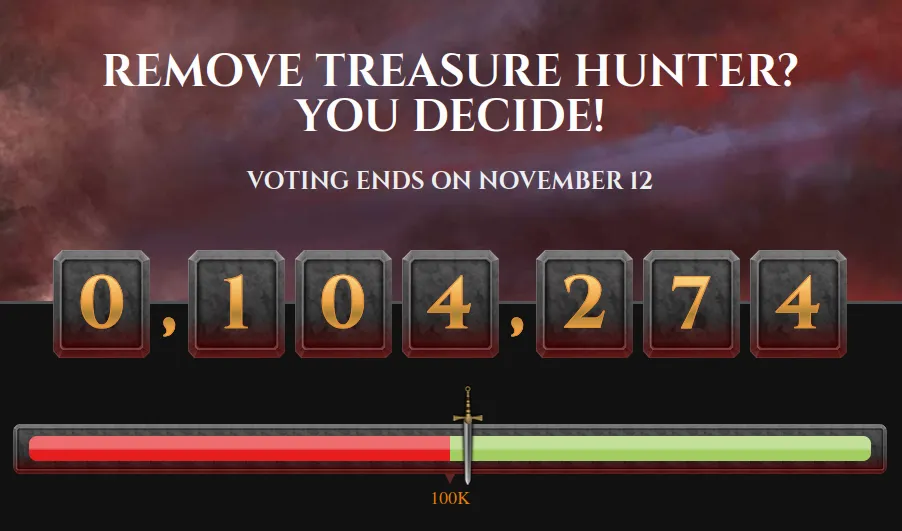A New Paradigm of MMO Democracy
MMORPGs are one of my favourite genres. They’re social, have diverse communities of players from all walks of life and who play the game in all manner of ways, they tend to be systems-heavy games with lots of opportunity for player expression and emergent gameplay, and they’re deliberately designed to evoke creative thought from their players (in terms of roleplay, player culture, or gameplay). They do all the things that I enjoy most in games. However, since the early 2010s, we’ve seen the genre fall off in terms of new releases. Guild Wars 2 is the last major high-profile western MMO launch that wasn’t followed by a studio closure (sorry Wildstar fans) or major controversy (I originally had a note about New World here, but 2 hours after I wrote this, AGS closed their Irvine studio that runs New World). Since then, outside of some eastern MMOs like Lost Ark and some indie projects like Albion Online, most MMOs have been primarily played via Twitter discourse about “WoW killers”. Ashes of Creation still doesn’t exist as anything other than an alpha, Riot’s project is vaporware, and while we get vague rumors of Guild Wars 3 and the occasional troubled release like the aforementioned New World, there isn’t a lot of brand new material in the MMO space. Games like Rust, Valheim, or Tarkov take some of the open ended systemic social gameplay but deliver them in cheaper or more concentrated packages. Game development costs have continued to rise, large publishers are increasingly risk averse, and high profile failures have scared away investors. MMOs continue on, but mostly in persistent multiplayer experiences like Destiny or the recent Fellowship, and on the back of games that have had established playerbases for more than a decade.
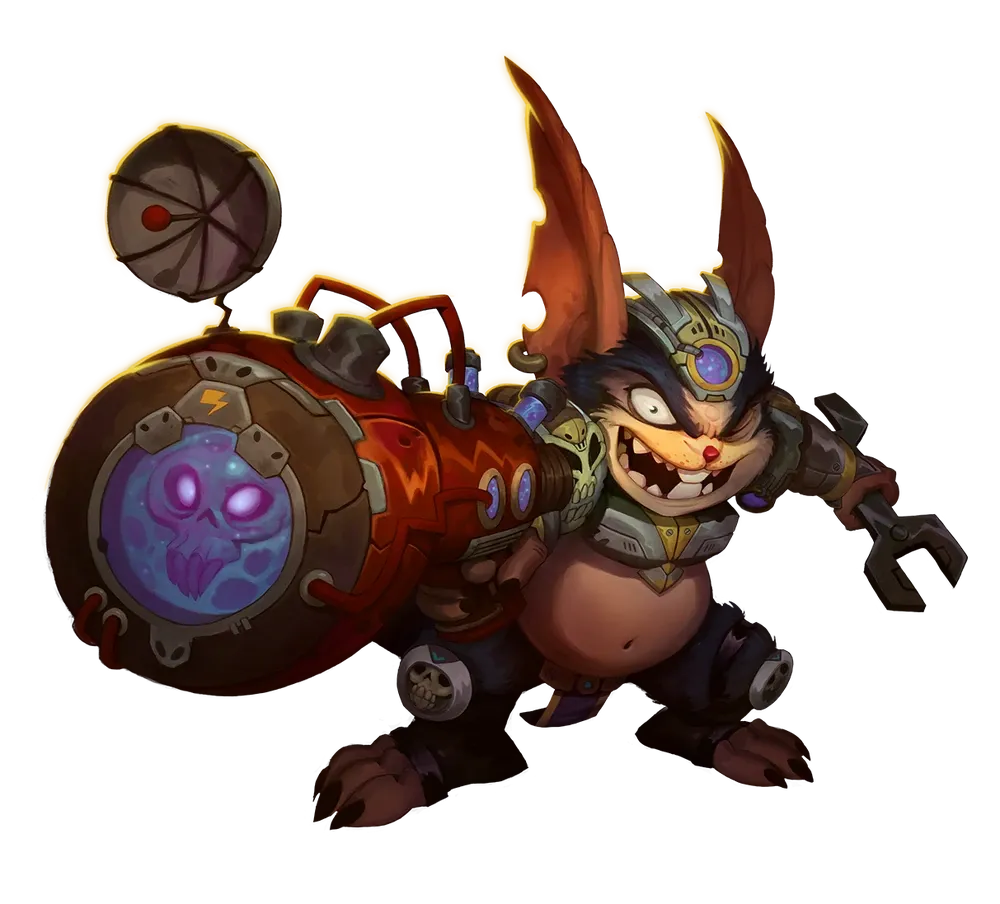 Those established games – World of Warcraft, Final Fantasy XIV, Guild Wars 2, and Runescape to name some of the biggest – have all had to maneuver this new normal for MMOs, and a few major strategies have emerged. Today I’m going to look at how one of these games’ developers has caused ripple effects throughout the space by creating a new model for both game development and recapturing lapsed players.
Those established games – World of Warcraft, Final Fantasy XIV, Guild Wars 2, and Runescape to name some of the biggest – have all had to maneuver this new normal for MMOs, and a few major strategies have emerged. Today I’m going to look at how one of these games’ developers has caused ripple effects throughout the space by creating a new model for both game development and recapturing lapsed players.
Fantasy Skinner Boxes
Runescape released nearly 25 years ago, and has changed enormously since then. What was originally a 3D game with 2D sprites was rewritten and rereleased as ‘Runescape 2’ in 2004, and then transformed once more with a major combat and design overhaul in 2013. Runescape is no stranger to change; however, while Runescape 2’s transformation was largely met with praise (though the original – then dubbed Classic – still had its community), the second evolution of the game was met with a much greater degree of consternation. Jagex experienced major trials over the course of the ‘00s: payment processors pressuring them into removing open player-to-play trade in late 2007, rampant botting, and increasing pressure from stakeholders as venture capital took an increasing stake in the company until gaining majority ownership circa 2010. Each of these difficulties molded the game. Inflated broken economies, the death of player vs player combat, increasingly predatory microtransactions (culminating in the infamous Squeal of Fortune, a means for players to literally gamble for in-game rewards), and the infamously poorly realized Evolution of Combat (EOC) update that marked the end of Runescape 2 and beginning of Runescape 3 pushed players out and gave rise to a burgeoning private server scene as well as a huge community of nostalgic former players who were underserved. 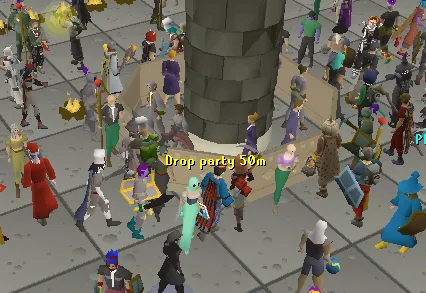
Off the back of EOC’s release, when Runescape 2’s nostalgia was at an all-time high and private servers were increasingly sophisticated and brazenly advertised, there was one project that captured the attention of a huge number of players: 2007scape. This private server was intended to be a true recreation of the original experience from early 2007. Before the death of player-to-player trade, before venture capital pushed Jagex to implement predatory microtransactions, and before any of the major changes that led up to, and culminated in, EOC. Unlike most private servers, it wasn’t designed to expedite the experience to funnel players into PvP, and it wasn’t skipping out on what many players considered tertiary like Quests. It was exactly what the nostalgic playerbase had hoped for: Runescape 2.
Seeing this growing community built around 2007scape, accumulating in a subreddit of the same name, a few Jagex developers had a bright idea: what if Jagex released their own retro Runescape 2 servers? Would players be willing to pay a sub fee to play an older version of the game without new content? Perhaps this loud community of private server players was made up of folks who just wanted to play an MMO for free, and this wouldn’t prove viable. Internally, these questions proved contentious. Until, in February 2013, Jagex’s CEO released an article on the Runescape website that held an interesting proposition for players: Jagex would release a public poll to gauge interest. Inspired by the burgeoning crowd funding scene fueled by sites like Kickstarter, this poll would include a number of stretch goals. 50K signatures and the server would launch. 250K and it would have a small development team to support it with quality of life updates. 500K and they would implement their updated anti-botting software and not charge extra to subscribers for access. Turns out, fans were more than enthusiastic. And within 2 weeks all but the lofty 500K goal had been met. 449,351 players told Jagex they wanted the servers, and so it was happening. Oldschool Runescape was a go.
Everyone has an Opinion
This proved to be a pivotal point in the genre. For years we’d seen different developers try out different models of transparency. Blizzard famously released its player counts right up until they started to drop around Mists of Pandaria’s era. Jagex themselves broadcasted concurrent player counts on their own website (and still do!). However, with time, much of this transparency waned. World of Warcraft had proven beyond a shadow of a doubt that MMOs were worth enormous amounts of money to people motivated by such things, and the increasing drive to maximize profits had pushed developers to metrics that didn’t always align with player interests. Loot boxes, increasing sub fees, cosmetics only available for real money, and the like became increasingly common place as the ‘00s waned, and so too did developers willingness to speak publicly about why such decisions were being made. Jagex’s poll was an abrupt and sudden break in that trend, and one that promised something of a paradigm shift.
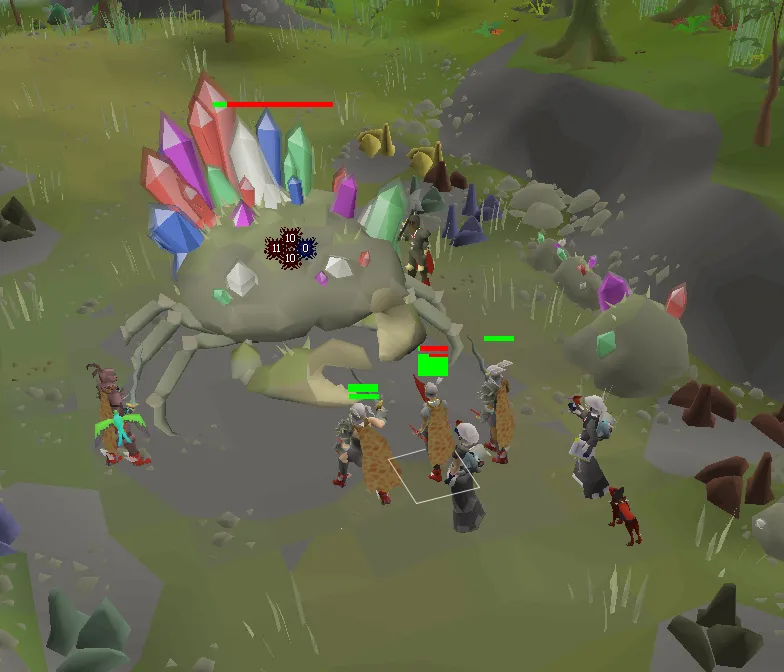 As Oldschool Runescape was released to the public, with a small developer team as promised, it also introduced player polls. First published in 2013, these were simple Yes/No (and later Skip) popularity polls that determined what content would or wouldn’t be added to the game. For instance, the very first poll included questions about adding an Easter event, adding worlds with restrictions similar to those placed on free to play worlds in 2007 (though these worlds still required an active subscription in 2013), and a bunch of UI improvements. Over time, Jagex’s polling charter would change. Requirements for something to pass dropped from a 75% majority to a 70% majority, recently new in-game interface options have been added that allow for more types of questions, and the types of questions have changed from literal any change to only new content or significant changes to current content. Over time, as Oldschool Runescape found its footing and pivoted from a historical artifact to a new branch in the Runescape multiverse, supplanting Runescape 3 as the most popular version of the game, the polling system necessarily changed with it. However, the ethos of the poll – the commitment to player engagement and dialogue between developer and player – remains stronger than ever. Oldschool Runescape’s developers regularly respond to questions and publicly solicit feedback on in-development projects, and major updates often undergo multiple polled review processes as they’re refined. The first new skill added since Oldschool launched, Sailing, has undergone six polls itself and will certainly undergo more as new content continues to be added after its launch next month.
As Oldschool Runescape was released to the public, with a small developer team as promised, it also introduced player polls. First published in 2013, these were simple Yes/No (and later Skip) popularity polls that determined what content would or wouldn’t be added to the game. For instance, the very first poll included questions about adding an Easter event, adding worlds with restrictions similar to those placed on free to play worlds in 2007 (though these worlds still required an active subscription in 2013), and a bunch of UI improvements. Over time, Jagex’s polling charter would change. Requirements for something to pass dropped from a 75% majority to a 70% majority, recently new in-game interface options have been added that allow for more types of questions, and the types of questions have changed from literal any change to only new content or significant changes to current content. Over time, as Oldschool Runescape found its footing and pivoted from a historical artifact to a new branch in the Runescape multiverse, supplanting Runescape 3 as the most popular version of the game, the polling system necessarily changed with it. However, the ethos of the poll – the commitment to player engagement and dialogue between developer and player – remains stronger than ever. Oldschool Runescape’s developers regularly respond to questions and publicly solicit feedback on in-development projects, and major updates often undergo multiple polled review processes as they’re refined. The first new skill added since Oldschool launched, Sailing, has undergone six polls itself and will certainly undergo more as new content continues to be added after its launch next month.
This isn’t to say the polling system isn’t contentious. Players often joke about polls that seem deliberately written to lead players to a certain answer, unpopular decisions being bundled with popular ones to make them more likely to pass, and different player groups (PvPers especially) having content made for them voted down out of spite or ignorance. I’m personally not the biggest fan of the system at this stage in Oldschool’s life. Jagex’s developers have proven repeatedly to have a genuine masterful understanding of what makes the game compelling and fun, and its been years since the last update I truly disliked launched. They do great work, and I don’t think the polling system does very much for the game anymore. That said, the accompanying communication through developer blogs, social media presence, and the willingness to share in-production concepts of art and new features is wonderful and I am so grateful that the Oldschool team is so open with their work.
You think you do...
Beyond the scope of Jagex, Oldschool Runescape’s impact has been tremendous. Officially supported retro MMO servers have been definitively proven to be a viable business model. But beyond this, Oldschool has demonstrated that sentiments like Blizzard’s now infamous “You think you do but you don’t” – spoken by World of Warcraft’s then-executive producer J. Allen Brack to fans asking for WoW retro servers post-Oldschool launch in 2013 – are simply wrong. Oldschool set the tempo for an MMO era in which Everquest’s Progression servers (2016), World of Warcraft Classic (2019), and continued support (and sometimes even growing populations!) of older games like Final Fantasy XI (2002) or Guild Wars (2005) would be a major pillar of the MMO landscape.
But Oldschool’s influence isn’t just about a retro MMORPG resurgence, it’s also about how the legacy games are developed. World of Warcraft, Final Fantasy XIV, Guild Wars 2, and indeed Jagex’s own Runescape 3 have also changed their orientation to players in recent years. Final Fantasy XIV recently concluded the narrative that defined the game since the game’s rerelease in A Realm Reborn (2013), and its lead director and producer Naoki Yoshida (“Yoshi P”) has been quite candid about the difficulty of finding the game’s new direction. Guild Wars 2, after being quietly sidelined as developer Arena Net struggled to get new projects off the ground, had something of a renaissance under Josh Davis – whose previous position at the company had him working closely with players in the PvP scene – and has made greater transparency a cornerstone of that transition.
The behemoth that is World of Warcraft has had something of a come to jesus moment since the Californian government filed a complaint against Blizzard (and its owners), alleging a horrific culture of misogyny, as well as its playerbase simultaneously reached a fever pitch of gameplay frustrations during covid. Taking an immense amount of criticism and at least the perception of dropping player numbers during a period when the rest of the entertainment industry was booming, Blizzard has struggles both internally and externally. Leadership changes, the frankly staggering Microsoft acquisition, unionization efforts, and the universal pressures of covid and the post-covid return to office mandates ensured that Blizzard was going to see a period of change, but it’s been impressive to see how the company has managed to rehabilitate its relationship to players despite all that. Unprecedented interview access, a huge increase in developer communication, roadmaps for both individual expansions and a whole set of expansions (dubbed the “Worldsoul Saga”) has been a pretty shocking turn around in just a handful of years since Shadowlands had players feeling entirely unheard. 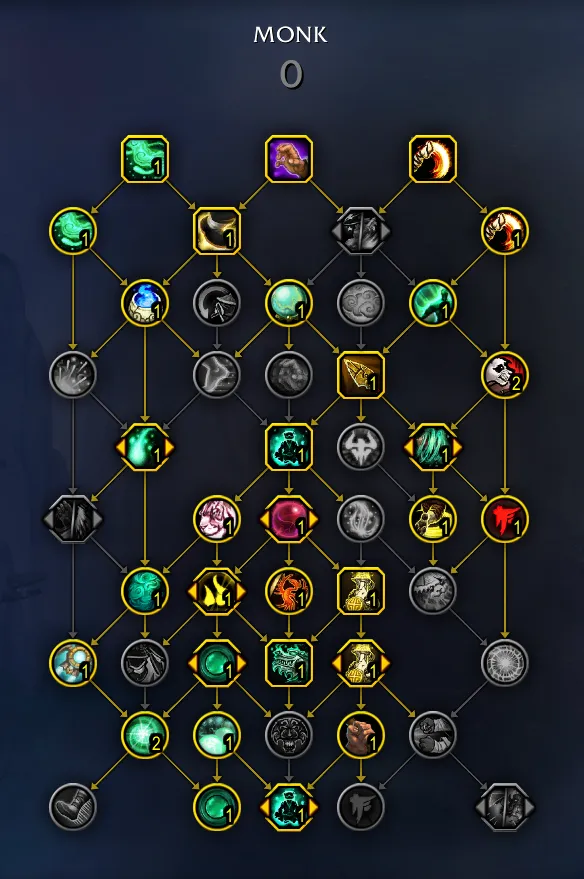
World of Warcraft’s demonstrated a complete mindset switch recently, and one that is heavily influenced by World of Warcraft Classic. Classic is a masterclass of game design that, like Oldschool Runescape, allows players to really get invested in their character and community. Features that retail WoW gradually introduced to reduce sore spots such as dungeon and raid matchmaking, a more intuitive stat system, and streamlined questing systems simply don’t exist in Classic, and while many players miss them, Classic – like Oldschool – has demonstrated that there is a sufficient community of players who do enjoy that style of game enough to sustain it as an alternative. Retail developers, having irrefutable data to show that this style of gameplay appeals to players, have massively reassessed their class and reward structure.
In Dragonflight (2022), Blizzard reimplemented a talent tree system that harkens back to those used in the first four versions of WoW. They also removed systems that granted exponential power increases that were external to the character (so called “borrowed power”) that had proven parasitic to the rest of the game’s class and loot design. With The War Within (2024), Blizzard built on this talent structure instead of replacing it, and continued to refine many of the new systems introduced in Dragonflight, all while promising these new systems would remain evergreen (that is, they wouldn’t be sunset after the expansion like many expansion features from 2012 to 2021). With the upcoming Midnight (2026), Blizzard is promising even more fundamental changes to their game on a base level: heavily modifying their in-game API for player made addons while introducing or overhauling UI features to reach better parity with popular addons, as well as a player housing system – something previously suggested to be impractical with their old tech. It’s clear Blizzard is doing a lot of the grunt work required for the game to be sustainable long term, and many of their decisions are greatly informed by the success of games like Classic and Oldschool, not just today but twenty years ago.
Coming Full Circle
With this paradigm shift well under way, it’s been extremely interested to come back to Runescape. Not Oldschool this time, but Runescape 3. A game that has struggled immensely while Oldschool thrived, RS3 has had difficulty retaining players, and even more difficulty attracting new ones. Anyone who gives it enough time to get sucked in and over come the initial learning curve can see there’s a fantastic game under 25 years of baggage, but it’s been in dire need of a tune up. Hell, it’s needed that tune up since 2012. In many ways, Oldschool was that tune up. But RS3 still exists as its own game, with its own development team and community, and Jagex recently pitched an idea: overhauling their microtransactions. Now, if you play any of the free to play games popular these days, this might sound pretty mundane. But you have to recall, RS3 is a 25 year old game that has dealt with tribulations with its monetization for more than a decade. There are players who have grown up and made families since they started playing, and their kids are old enough to have their own Runescape accounts. And yet in all this time, one of the most common sore spots are microtransactions or ‘MTX’.
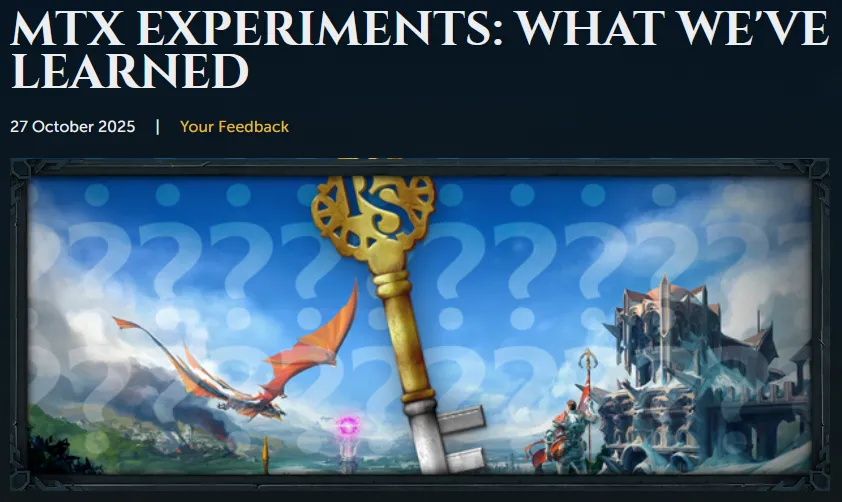 Runescape’s microtransactions, by today’s standards, are really nothing exceptional. Daily loot boxes, cosmetics, that sort of thing. But in the context of a sandbox MMO where the sanctity of player experience points, levels, and items are the most fundamental basis for all gameplay, daily loot boxes that award items that enormously increase experience rates, and cosmetic overrides that hide your rare items have proven extremely contentious. Add to this the fact that these microtransactions were regularly integrated in to the UI in ways that were almost impossible to ignore – pop ups on logging in, in-game NPCs that prompt you to pay money or open a real money shop interface, events that notify you of all the stuff you’re missing out on if only you’d cough up a bit more money – and you have a recipe for extreme player resentment towards what they perceive as a system designed not only to extract money from their bank accounts, but also to undo the value of their literal decades of effort. Add to this resentment Youtube videos showing players leveling a character from nothing to max stats (a feat that would take an unskilled player years of regular play) using purely microtransactions, and lets just say that fire is raging. So when Jagex’s leadership comes out and says they want to reevaluate, there’s a lot of interest.
Runescape’s microtransactions, by today’s standards, are really nothing exceptional. Daily loot boxes, cosmetics, that sort of thing. But in the context of a sandbox MMO where the sanctity of player experience points, levels, and items are the most fundamental basis for all gameplay, daily loot boxes that award items that enormously increase experience rates, and cosmetic overrides that hide your rare items have proven extremely contentious. Add to this the fact that these microtransactions were regularly integrated in to the UI in ways that were almost impossible to ignore – pop ups on logging in, in-game NPCs that prompt you to pay money or open a real money shop interface, events that notify you of all the stuff you’re missing out on if only you’d cough up a bit more money – and you have a recipe for extreme player resentment towards what they perceive as a system designed not only to extract money from their bank accounts, but also to undo the value of their literal decades of effort. Add to this resentment Youtube videos showing players leveling a character from nothing to max stats (a feat that would take an unskilled player years of regular play) using purely microtransactions, and lets just say that fire is raging. So when Jagex’s leadership comes out and says they want to reevaluate, there’s a lot of interest.
The decision itself I think speaks to the influence of this paradigm shift, but more than that I’m sort of awestruck by how the Runescape team has been handling it. They began by surveying players and soliciting feedback, but not long after they began to run experiments. New servers with no cosmetic overrides, disabling loot box style microtransactions and letting people buy directly for a set cost, removing the Squeal of Fortune. Then they surveyed again, and the responses were interesting. I wont paraphrase all their findings, but the bit that really struck me is that a shocking amount of the data presented in this summary article indicates there’s quite a bit of opposition to the removal of microtransactions – even the least popular ones. Jagex, seeing this, could have easily nixed this whole effort and decided to maintain what I expect is still a fairly profitable endeavor. However, instead, the team offers a nuanced take that concludes that their game has fundamental problems with its interface and features that alienate new and casual players, and while they’ve struggled to keep new players, many long time casual players have come to rely on microtransactions to overcome those problematic bits of friction. In a world of lawyerspeak and corporate double talk, it is incredibly refreshing to see developers given license to be honest and express a genuine concern not only for the profitability of their product, but for the health of their passion project.
I’ve said before that MMOs are special because they don’t just create a facsimile of a world, but of the culture and social experiences therein as well. As these games have aged and the genre as a whole has maneuvered through the uncaring world of the video game industry, that culture has certainly felt it. But despite a feeling of dread about so many aspects of the games industry recently (the death of games media, rising prices of software and hardware, the continued blossoming of games meant to teach children that gambling is fun, yada yada), the Oldschool team has been a delight. Whether it’s pride events, adding joyful easter eggs to their updates, or the jokes and conversations they have regularly with players, I really appreciate their willingness to take risks and in so doing, present themselves not as a faceless corporate entity but as a group of passionate people who love their game. Seeing their influence expand outwards and lead by example both with other MMO developers and in this recent RS3 microtransaction shake up is heartening and gives me a lot of optimism for the future of MMOs that I don’t have for other aspects of the games industry.
10/29/2025 14:24PM Edit – Runescape 3's developers just went live with the follow up to their microtransaction efforts: an open poll, like the one that created Oldschool Runescape to determine the future of microtransactions. You can find it here.
10/30/2025 22:21PM Edit – The vote has reached the required threshold!
